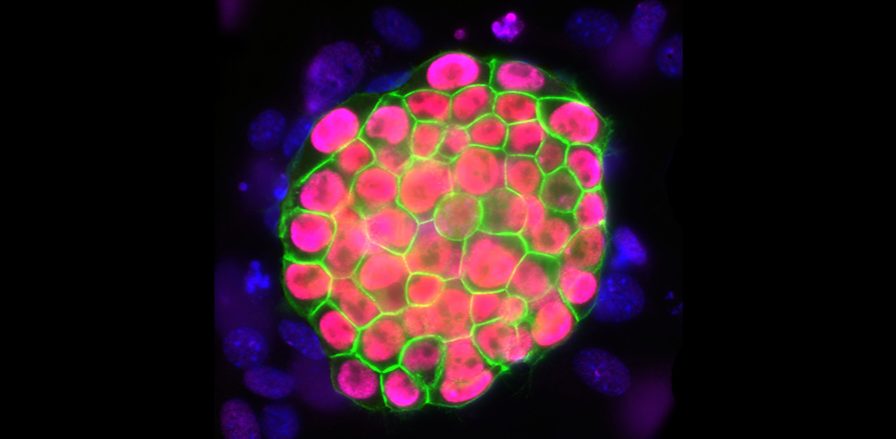
Researchers at the Texas A&M Health Science Center (TAMHSC) Institute of Biosciences and Technology in Houston have uncovered a new mechanism for safeguarding the genetic integrity of actively dividing stem cells. The study is currently available online in Proceedings of the National Academy of Sciences.
Such stem cells play critical roles in embryonic development and adult tissue regeneration. Conversely, defective stem cells may harbor a mechanism that causes tumors.
“Duplication of the genome during cell division is a critical period during a cell’s life cycle,” explained Robert Tsai, M.D., Ph.D., associate professor in the Center for Cancer and Stem Cell Biology and leader of the study. “An unrepaired part of the genome can cause catastrophic genetic error and disease. Prevention of genomic error is particularly critical in stem cells because such cells become organs and renew adult tissue. Furthermore, when a genetic error is allowed to replicate, the resulting instability can cause some cancers to become resistant to treatment.”
Dr. Tsai and his research team used mice in which a protein nucleostemin – a protein that regulates the cell cycle and affects cell differentiation – was deleted from nervous system, or “neural” cells.
In the current study, they showed that nucleostemin plays an important role in preventing DNA damage of non-telomeric chromosomes during neural stem cell replication. These cells underlie the regeneration of neurons that was previously thought impossible. Now such cells hold great promise for treatment of traumatic brain and spinal cord injuries and neurological defects.
Dr. Tsai’s team found that nucleostemin plays a critical role in guarding neural stem cells from DNA damage during replication. It then aids in repairing damaged sites that stall the cell division process and cause genetic error and instability in surviving cells. Ultimately, restoring nucleostemin to the deficient tissue reduced DNA damage and additional exposure to nucleostemin protected against DNA damage.
Contributors to the study from the TAMHSC Institute of Biosciences and Technology were graduate students Lingjun Meng, Tao Lin, and Joseph K. Hsu, and visiting scientist Sun Lee from Kyung Hee University in South Korea. Dr. Guang Peng and Dr. Shiaw-Yih Lin from The University of Texas MD Anderson Cancer Center also contributed. Research was supported by National Cancer Institute grant and a Texas A&M Research Development and Enhancement Award.






